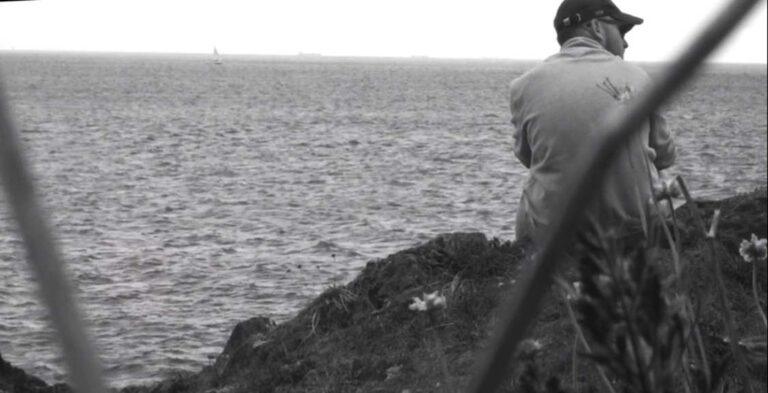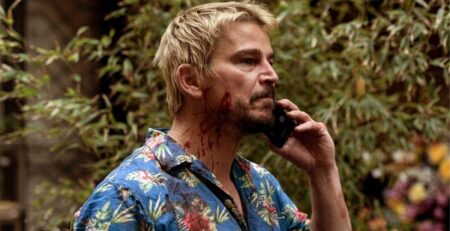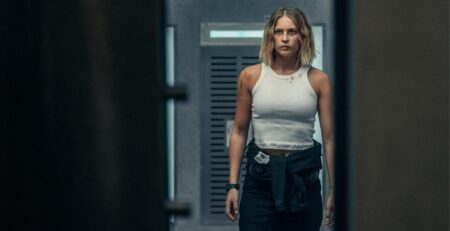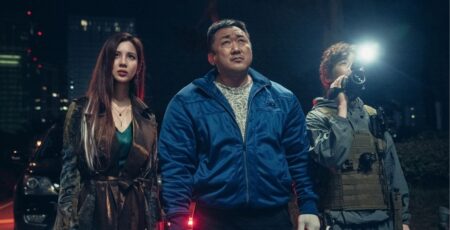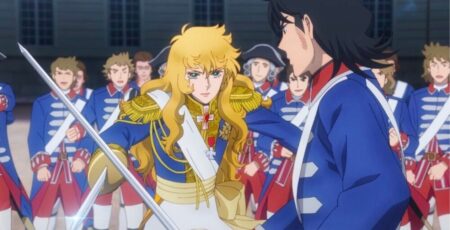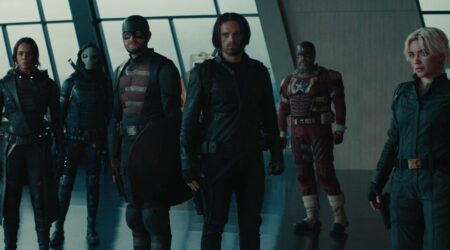Wehikuł Czazu (Time Vehicle) is a short film written and directed by Maciek Kaliski. Second of a series of short films, the ten-minute short doesn’t have a definitive narrative. Instead, a series of clips takes the audience through the director’s own memories as he seeks to strike a connection between the past and the future and how they interlock with each other within himself.
Time is the most prevalent theme within the short film, as there is a huge emphasis placed on the generations of the director’s family as he explores his own memories. The first minute has the echoing sound of a ticking clock, which not only plays to the theme, but also provides a metronome for the audience that they follow throughout the rest of the short. The short presents time as fluid, as it switches between footage of the director’s family and himself in classic VHS home videos. While there is no indication that these people are the family of the director, the presentation of the videos feels incredibly personal and touching. The passage of time is used as part of Kaliski’s contemplation, too, as members of his family appear in both the home movies and the present clips.
Wehikuł Czazu is very beautifully filmed and well-edited, fusing together the past with the present. In the past, real footage of Kaliski’s family and himself was used to show where he came from. The colorful home footage of ceremonies really contrasts well with the stark white of the present-day footage. Much of the footage of the “now” is still and quiet, which helps the transition between each clip. Each one of the transition clips instills a feeling of calm in the audience.
The clips of Kaliski’s past are great and really work well with his intended aim. It is in the present where I found it to be lacking. The calm shots of trees in the wind and the ocean were nice to look at, but some felt like they had no reason to be there. It may have been more beneficial to the short as a whole to feature more shots in the present that are more relevant to the theme. Without it, some of the clips feel out of place, sometimes even negatively affecting the short film. The personal footage is really great to watch, but more could be done to link the past and the present.
Wehikul Czazu could also be improved by a scripted narration to truly bind the two eras together. Without a written explanation, the audience may find themselves confused about the director’s true intent when creating it. Kaliski provided a paragraph to explain the content for this review, but without it, it could take an audience member some time to understand what the creator was trying to achieve.
Wehikuł Czazu is a beautifully shot short film that feels like it could be the foundation of something great. Kaliski’s knowledge of editing and cinematography is evident from the use of color, and the adventure he takes you through his memories is well done. Throughout the short film, you are left with a feeling of calm. But I found myself struggling to truly understand the message the director is trying to project because some of the present-day footage feels disorienting. To create a conversation between the past and present, the present should have a more powerful voice. It would create less confusion and let the audience appreciate its beauty without scratching their head. If this serves as a taster for something bigger and better, then I am definitely interested.
You can watch Wehikuł Czazu here.
Wehikuł Czazu
-
Rating - 7/107/10
TL;DR
Wehikuł Czazu is a beautifully shot short film that feels like it could be the foundation of something great. Kaliski’s knowledge of editing and cinematography is evident from the use of color, and the adventure he takes you through his memories is well done.

